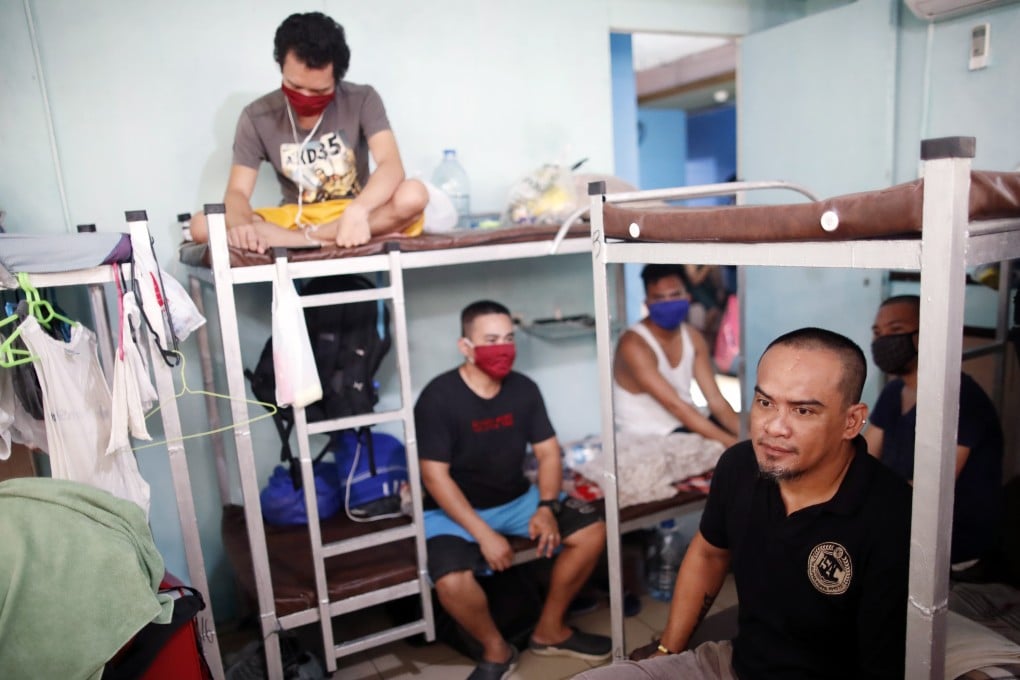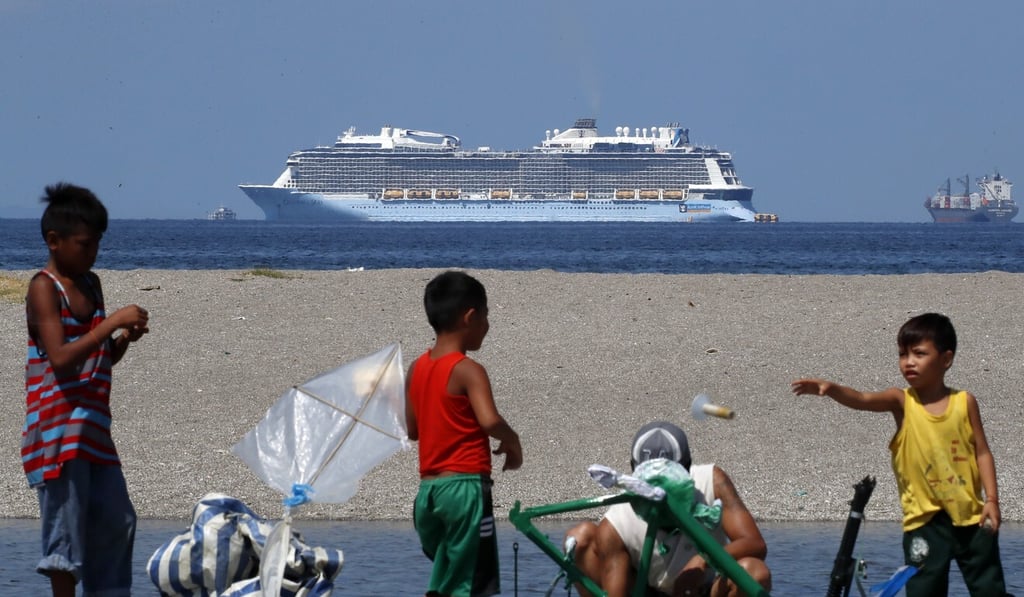Advertisement
Coronavirus threatens Philippines’ ‘economic lifeline’ of OFW remittances
- An estimated US$30 billion was sent home by overseas Filipino workers in 2019 – a figure that could be set to plummet by up to 20 per cent
- Thousands of workers who lost their jobs in the wake of the pandemic are now returning home to uncertainty and economic hardship
4-MIN READ4-MIN

A flotilla of 17 cruise ships arriving in Manila Bay would normally gladden the hearts of Philippine officials, but not when they are filled with thousands of Filipinos who have lost their jobs abroad because of the coronavirus pandemic.
For decades, the Philippines has relied on its overseas Filipino workers, or OFWs, to drive economic growth and provide a cushion against financial crises with their remittances. Last year, an estimated 10 million OFWs sent about US$30 billion home – equating to nearly 8 per cent of the country’s GDP.
But that amount could be set to plummet by some US$6 billion in the wake of the pandemic, according to an estimate by the Ateneo Centre for Economic Research and Development in Manila, which if it happened would be “the steepest drop of remittance inflows in Philippine migration history”.
Advertisement
More than one in 10 Filipino households have a family member who is an OFW and their remittances are “a major economic lifeline”, Atteneo said.

Advertisement
Yet as the pandemic shuts down businesses and industries all over the world – leaving thousands of OFWs out of work and returning home – that lifeline is now under threat.
Advertisement
Select Voice
Select Speed
1.00x